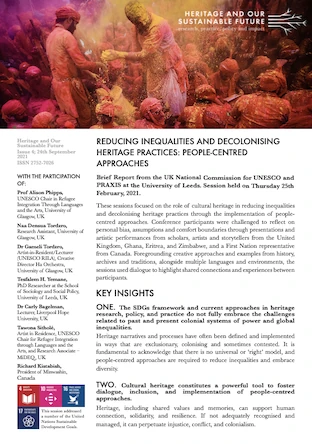
Brief report from the UKNC and PRAXIS at the University of Leeds 'Heritage and our Sustainable Futures' Conference in spring 2021. These sessions focused on the role of cultural heritage in reducing inequalities and decolonising heritage practices through the implementation of people-centred approaches.






